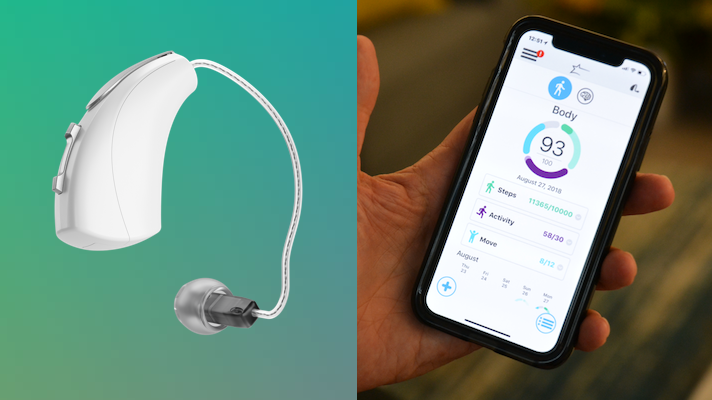Hearing and Dementia linked in previous studies
By Shannon Aiello, Doctor of Audiology, Columbia Basin Hearing Center
The Columbia Basin Hearing Center doctors recently attended a presentation introducing a groundbreaking study linking hearing aid usage and a reduction in the risk of dementia presented by Helen Amieva, Ph.D. The long term study, done at the University of Bordeaux, France, looked at 3,670 adults age 65 and over for a 25-year period. Researchers found that those who used hearing aids had no greater risk of cognitive decline than those with normal hearing. In contrast, during the 25 year study those with untreated hearing loss had significantly lower baseline scores on the Mini-Mental State Examination, a widely used test of cognitive function. The astounding results of the study not only have potential to revolutionize the hearing care industry, but to encourage even more people to seek treatment for their hearing loss.
When the brain’s ability to process sound is compromised, a person’s ability to understand speech declines. The hearing areas of the brain become weaker, and the areas of the brain that are necessary for higher level thinking then attempt to compensate for the weaker areas. When they step in and try to take over for hearing, they are unavailable to do their primary cognitive jobs (thinking, problem solving, reasoning, etc.). This brain reorganization could explain why age-related hearing loss is so strongly correlated with dementia, and why it should be taken seriously.
This research is very much supported by what the CBHBC Audiologists see from some of our geriatric patients. Often times, there is much confusion among family and caretakers of patients with these two conditions. Many times, I hear family members ask “I’m not sure if she’s just ignoring me, she’s not processing what I say or she’s not hearing what I say.” Even more often, I have seen patients who have untreated hearing loss which appears identical to dementia. These patients don’t respond when they are spoken to, or respond inappropriately. Many times after successful identification of the hearing loss and intervention with hearing aids, these patients are able to enjoy a much higher quality of life and interaction with their family and friends, when they were not able to due to “dementia.”
If you have a family member beginning to show signs of dementia, be sure to have their hearing checked. Identifying and treating an underlying hearing loss may help slow the progression of the disease or combat it all together. Please call the Doctors of Audiology at Columbia Basin Hearing Center to schedule an audiological evaluation.







